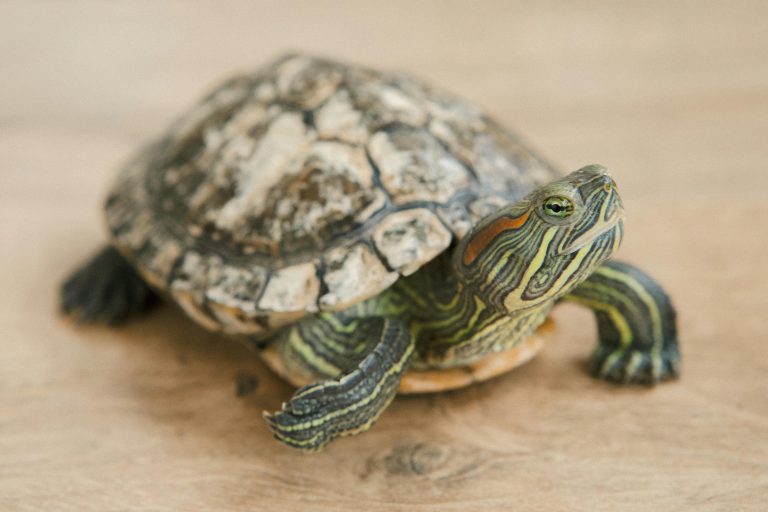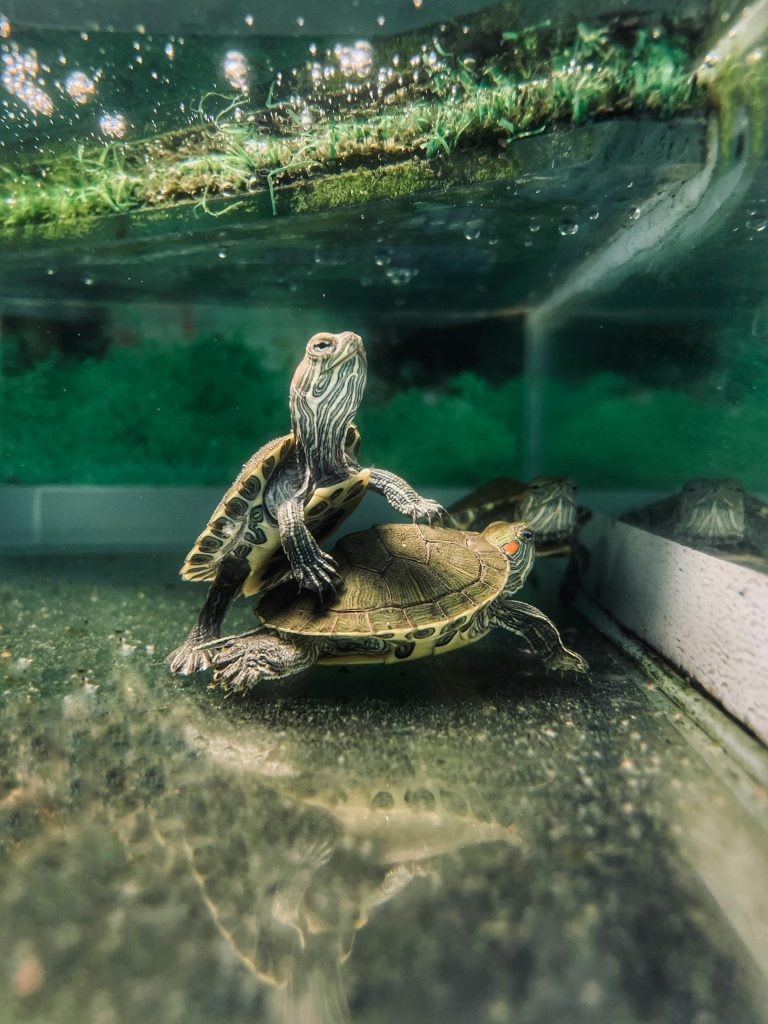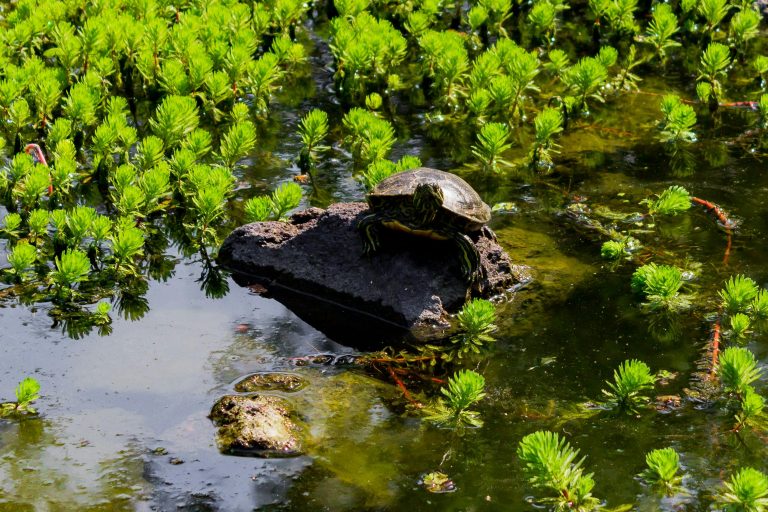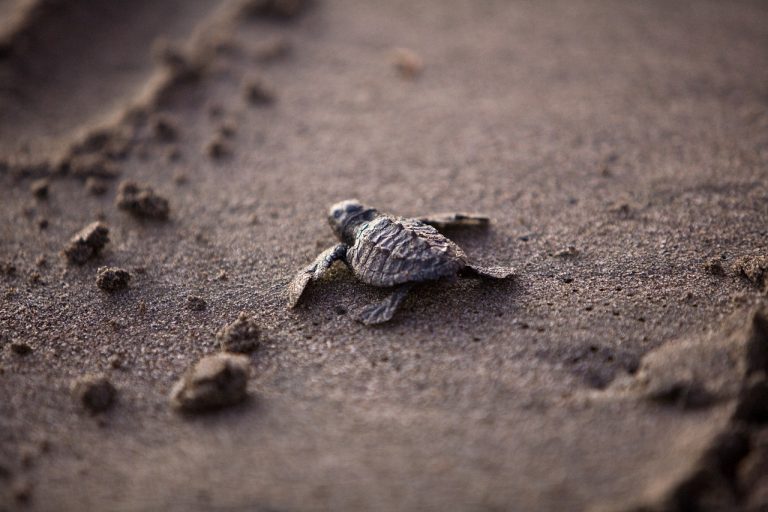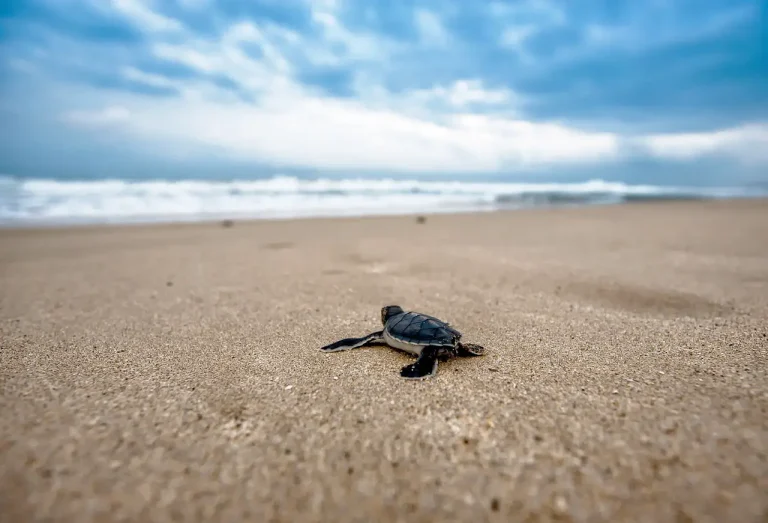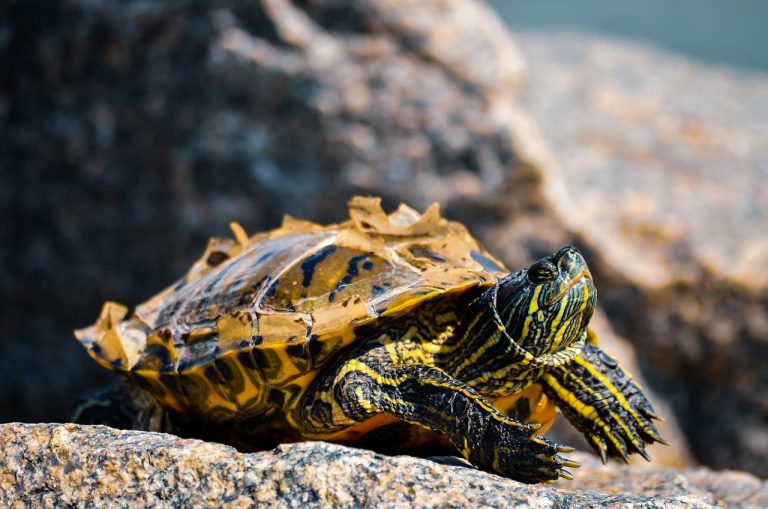Can Turtles & Tortoises Eat Watermelon?
“Did you know that most turtles and tortoises have a soft spot for watermelon? Yep, it’s true! Your little shelled friend might just go crazy for it, and the best part? It’s actually pretty good for them, too. But like with any treat, it’s all about moderation and keeping things in check.
Watching your pet turtle chow down on a slice of watermelon is seriously adorable, isn’t it? But hey, before you start handing out chunks of this juicy fruit like there’s no tomorrow, it’s important to make sure it’s safe for them to munch on.
So, in this article, we’re going to dive into all the things you need to consider before serving up some watermelon for your turtles and tortoises. Ready? Let’s get started!”
Can Turtles Eat Watermelon?
It’s true, turtles are pretty adventurous eaters! Giving your turtle some watermelon is totally fine, as long as you’re making sure they’re getting a balanced diet overall.
You don’t need to worry about watermelon causing any harm to your little shelled buddy. Along with plenty of other fruits, watermelon is actually a safe option for turtles to enjoy.
In fact, it can be a really nice treat for them, full of hydration and nutrients. Most turtles, including red-eared sliders and land-dwelling tortoises, can munch on watermelon without any issues at all. So go ahead and treat your pet to a slice of this juicy goodness!
Do Turtles Get Benefit From Eating Watermelon?
Watermelon offers several benefits for turtles, making it a favored choice among these little critters, especially when given the option between fruits and veggies.
One of the standout features of watermelon is its incredibly high water content, sitting at around 90 percent. This means that when your turtle munches on watermelon, they’re not only getting a tasty snack but also staying well-hydrated, which is essential for their overall health. Plus, since wet foods are easier for turtles to swallow compared to dry pellets, it’s a win-win situation.

But hydration isn’t the only perk of watermelon for turtles. It’s also packed with essential vitamins like A and C, which play crucial roles in their well-being. These vitamins help maintain everything from their eyesight to their immune system, keeping your turtle happy and healthy.
Moreover, watermelon serves as a natural aid for turtles in various ways. It helps them maintain a healthy water balance, flush out any harmful pollutants from their system, and even keeps their skin soft and supple. So, offering your turtle a juicy slice of watermelon isn’t just a treat—it’s a little boost of goodness that contributes to their overall vitality.
How To Feed Your Turtle Watermelon?
If you’re thinking of treating your turtle to some watermelon, it’s important to proceed with caution. Like us, turtles need a bit of time for their stomachs to adjust to new foods, so it’s best to start off slowly.
Before offering watermelon to your turtle, make sure you remove all the seeds first. These can be a choking hazard, so it’s better to be safe than sorry. Also, avoid serving the green rind of the watermelon to your turtle. While it might seem tempting to offer the whole fruit, the tough outer part can be difficult for turtles to bite and could potentially pose a choking risk.
Remember, every turtle has its own preferences. If your turtle doesn’t seem interested in watermelon after a few tries, don’t force it. Just like us, they have their own taste buds! If watermelon doesn’t float their boat, there are plenty of other fresh produce options to try. So, be patient and keep experimenting until you find the perfect treat for your shelled friend.
Precautions While Giving Watermelon To Your Turtle
When it comes to treating your turtle to some watermelon, it’s generally safe, but there are a few important things to keep in mind for the well-being of your scaly pals.
First off, watermelon is pretty high in sugar, so while it’s okay as an occasional snack, overdoing it could lead to some serious health issues for your turtles. They need a balanced diet just like we do, with fruits making up only a small portion—about 10% to 20%—of their overall plant-based meals. The rest should be filled in with lean proteins and greens to ensure they’re getting all the nutrients they need.
It’s also crucial not to rely solely on watermelon or any other single type of food. Variety is key to a healthy turtle diet. Feeding them just one thing can mean they miss out on important vitamins and minerals they need to thrive.
Another thing to be aware of is the risk of salmonella, which can be present on the skin of turtles. Always wash your hands thoroughly after handling your pet to avoid any potential illness.
And finally, keep an eye out for any changes in your turtle’s behavior or appearance. If you notice anything unusual, like a loss of appetite or strange physical symptoms, stop giving them watermelon immediately and consult a vet.
In short, while watermelon can be a tasty treat for your turtle, moderation and variety are key to keeping them healthy and happy. So mix things up and offer them a diverse range of foods to munch on!
Can Baby Turtles Eat Watermelon?
A turtle’s diet is heavily influenced by factors like age, size, and specific nutritional needs. It’s important to recognize that young turtles have different dietary requirements compared to their adult counterparts.
For instance, baby turtles require a diet that’s higher in protein than that of adult turtles. This means their meals should contain more animal matter rather than plant-based foods. While watermelon might be a tasty snack, it shouldn’t make up the bulk of their diet.
Instead, focusing on providing them with a balanced mix of protein-rich foods is essential for their growth and development. Incorporating items like insects, fish, and other sources of animal protein will better meet the needs of young turtles and support their health as they grow. So while watermelon can be a fun occasional treat, it’s important to prioritize their need for protein in their diet.
Can Tortoises Eat Watermelon?
There’s quite a variety of tortoise species out there, and each one has its own unique preferences when it comes to food.
While the majority of tortoises primarily munch on plants and vegetation, let’s take a closer look at a few specific species:
- Yellow-Footed Tortoise: These beauties hail from the Southern Colombian rainforests and are easily distinguished by their striking yellow markings on their limbs, shell, and head. They’re pretty versatile eaters, enjoying a wide range of foods including fruits and veggies, so a slice of watermelon would likely be a welcomed treat for them.
- Elongated Tortoises: Known for their dark yellow shells and sometimes referred to as “yellow-headed tortoises,” these creatures can live for several decades and make wonderful pets due to their gentle nature. Being omnivores, they can indulge in bits of watermelon as part of their diet.
- Red-Footed Tortoise: A popular pet choice in the United States, these tortoises sport a colorful tricolor pattern on their lower limbs. With their captivating personalities and long lifespans, they can enjoy watermelon as an occasional snack, fitting into their omnivorous diet.
- Mediterranean Tortoises: If you have a Mediterranean tortoise, like the Hermann’s tortoise found in the Mediterranean region, it’s best to steer clear of sugary fruits like watermelon. These tortoises are primarily herbivores, and feeding them fruits can potentially upset their digestion and cause stomach issues.
So, while some tortoise species may happily munch on watermelon, others are better off sticking to their plant-based diets to maintain their health and well-being.
Do Tortoises Benefit From Eating Watermelon?
Watermelon packs quite a punch when it comes to vitamins and minerals, including important ones like vitamins A, B, and C. Plus, with its whopping 92% water content, offering watermelon to your tortoise is a fantastic way to ensure they stay hydrated.
Thanks to all that hydration, tortoises can maintain healthy levels of moisture in their skin, which is crucial for their overall well-being. But the benefits don’t stop there—watermelon is also loaded with antioxidants like lycopene, along with being low in calories. So not only does it help keep your tortoise refreshed, but it also provides a nutritious and guilt-free snack option.
How To Feed Watermelon To Your Tortoise?
Before introducing watermelon to your tortoise’s diet, it’s crucial to ensure their digestive system can handle it. Start with a small amount and keep an eye on their feces afterwards.
While most fruit-eating tortoises can enjoy watermelon without issues, there are some individuals who may not metabolize it well. As long as everything looks normal with your tortoise’s digestion, you should be good to go ahead with offering them watermelon as a treat.
How Often Can You Feed Your Tortoise Watermelon?
While fruit-eating tortoises can enjoy watermelon from time to time, it’s important to remember that moderation is key. As tempting as it may be to indulge your pet, too much of a good thing can have negative consequences.
Experts often recommend offering watermelon, along with other suitable fruits and vegetables, as a special treat to be given around once a month. Some pet owners may opt to offer a small piece of watermelon every few weeks, thinking it’s harmless. However, due to its high sugar content, it’s best to use watermelon sparingly and only as an occasional addition to your pet’s meals.
By keeping watermelon as a rare and special treat, you can ensure that your fruit-loving tortoise stays healthy and happy without overloading them with excess sugar.
Before Leaving…
Maintaining a simple yet balanced diet is key to keeping your turtle or tortoise healthy and thriving. A diet rich in pellets, live prey, vegetables, and fruits can provide them with all the nutrients they need.
While vegetables and fruits can add variety to their meals, it’s essential to do your research before introducing anything new to their diet. Checking online resources or consulting with a veterinarian can help ensure that any new foods you offer are safe and healthy for your shelled companions. By taking these precautions, you can keep their diet diverse and nutritious, promoting their overall well-being.
